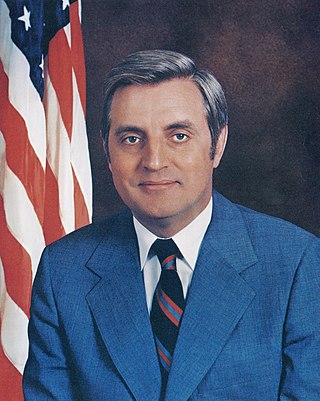
Walter Frederick "Fritz" Mondale was an American lawyer and politician who served as the 42nd vice president of the United States from 1977 to 1981 under President Jimmy Carter. He previously served as a U.S. senator from Minnesota from 1964 to 1976. He was the Democratic Party's nominee in the 1984 presidential election but lost to incumbent Ronald Reagan in an Electoral College and popular vote landslide.
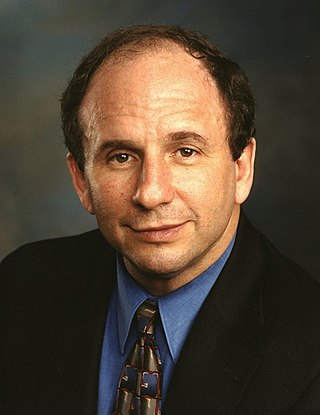
Paul David Wellstone was an American academic, author, and politician who represented Minnesota in the United States Senate from 1991 until he was killed in a plane crash near Eveleth, Minnesota, in 2002. A member of the Democratic Party (DFL), Wellstone was a leader of the populist and progressive wings of the party.

Wendell Richard"Wendy"Anderson was an American politician and hockey player who served from 1971 to 1976 as the 33rd governor of Minnesota. In late 1976, he resigned as governor in order to be appointed to the U.S. Senate, after Senator Walter Mondale was elected Vice President of the United States. Anderson served in the Senate for almost two years, but after losing the 1978 Senate election to Rudy Boschwitz, he resigned a few days before the end of his term to give Boschwitz seniority.
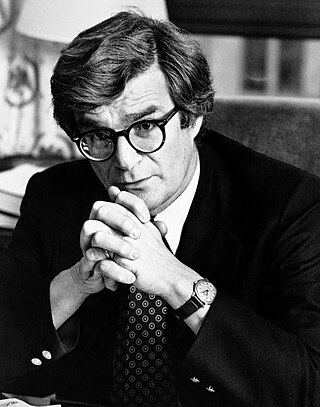
Rudolph Ely “Rudy” Boschwitz is an American politician and businessman from the state of Minnesota. A member of the Republican Party, he served as a member of the United States Senate from 1978 to 1991. From 1987 to 1989, Boschwitz served as the chairman of the National Republican Senatorial Committee.

The 2002 United States Senate elections featured a series of fiercely contested elections that resulted in a victory for the Republican Party, which gained two seats and thus a narrow majority from the Democratic Party in the United States Senate. The Senate seats up for election, known as class 2 Senate seats, were last up for regular election in 1996. The election cycle was held on November 5, 2002, almost 14 months after the September 11, 2001, attacks.

The 1996 United States Senate elections were held on November 5, 1996, with the 33 seats of Class 2 contested in regular elections. Special elections were also held to fill vacancies. They coincided with the presidential election of the same year, in which Democrat Bill Clinton was re-elected president.
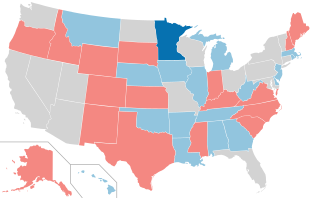
The 1990 United States Senate elections were held on Tuesday, November 6, 1990, with the 33 seats of Class 2 contested in regular elections. Special elections were also held to fill vacancies. The Democratic Party increased its majority with a net gain of one seat from the Republican Party. The election cycle took place in the middle of President George H. W. Bush's term, and as with most other midterm elections, the party not holding the presidency gained seats in Congress. This was the first time since 1980 that any party successfully defended all their own seats, and the first time Democrats did so since 1958.

The 1984 United States Senate elections were held on November 6, with the 33 seats of Class 2 contested in regular elections. They coincided with the landslide re-election of President Ronald Reagan in the presidential election. In spite of the lopsided presidential race, Reagan's Republican Party suffered a net loss of two Senate seats to the Democrats, although it retained control of the Senate with a reduced 53–47 majority.

The 1978 United States Senate elections were held on November 7, in the middle of Democratic President Jimmy Carter's term. The 33 seats of Class 2 were contested in regular elections. Special elections were also held to fill vacancies.

The 1972 United States Senate elections were held on November 7, with the 33 seats of Class 2 contested in regular elections. They coincided with the landslide re-election of Republican President Richard Nixon. Despite Nixon's landslide victory, Democrats increased their majority by two seats. The Democrats picked up open seats in Kentucky and South Dakota, and defeated four incumbent senators: Gordon Allott of Colorado, J. Caleb Boggs of Delaware, Jack Miller of Iowa, and Margaret Chase Smith of Maine. The Republicans picked up open seats in New Mexico, North Carolina, and Oklahoma, and defeated one incumbent, William B. Spong Jr. of Virginia.
Split-ticket voting or ticket splitting is when a voter in an election votes for candidates from different political parties when multiple offices are being decided by a single election, as opposed to straight-ticket voting, where a voter chooses candidates from the same political party for every office up for election. Split-ticket voting can occur in certain mixed-member systems which allow for it, such as mixed-member proportional and parallel voting systems.

Joan Ruth Anderson Growe is an American politician who served as Secretary of State of Minnesota from 1975 to 1999. Known for her work to encourage voter participation, her 24-year tenure was the longest of any secretary of state in Minnesota's history. In 1984, she unsuccessfully challenged Republican U.S. Senator Rudy Boschwitz, losing the election with 41% of the vote.
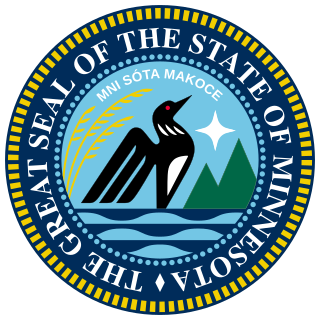
Minnesota is known for a politically active citizenry, with populism being a longstanding force among the state's political parties. Minnesota has consistently high voter turnout, ranking highest or near-highest in recent elections. This is due in part to its same-day voter registration laws; previously unregistered voters can register on election day with evidence of residency.
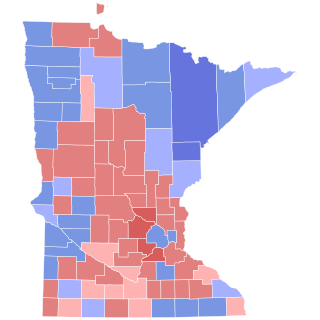
The 2002 United States Senate election in Minnesota took place on November 5, 2002. Incumbent Senator Paul Wellstone was running for a third term but died in a plane crash eleven days before the election. The Democratic–Farmer–Labor Party (DFL) quickly chose former Vice President and 1984 presidential nominee Walter Mondale to replace Wellstone on the ballot. Mondale had previously held the seat from 1964 to 1976, resigning to assume the vice presidency. He narrowly lost to Republican Norm Coleman, the former mayor of Saint Paul. The day before the election, Governor Jesse Ventura appointed the 1996 Independence Party candidate, Dean Barkley, to serve the remainder of Wellstone's term.

The 1984 United States presidential election in Minnesota took place on November 6, 1984, as part of the 1984 United States presidential election. Voters chose ten representatives, or electors to the Electoral College, who voted for president and vice president.

The 1996 United States Senate election in Minnesota was held on November 5, 1996. Incumbent Democrat Paul Wellstone won reelection to a second term defeating former Republican Senator Rudy Boschwitz in a rematch.

The 1984 United States elections were held on November 6, and elected the members of the 99th United States Congress. Republicans won a landslide victory in the presidential election, picked up seats in the House of Representatives, and successfully defended their Senate majority.
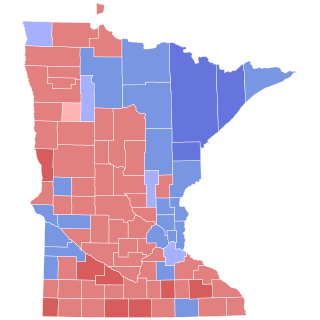
The 1990 United States Senate election in Minnesota was held on November 6, 1990. Incumbent Republican U.S. Senator Rudy Boschwitz was defeated by Democratic challenger Paul Wellstone in a tight race. Widely considered an underdog and outspent by a 7-to-1 margin, Wellstone was the only candidate to defeat an incumbent senator as well as the only candidate to flip a seat in the 1990 election cycle and gained national attention after his upset victory. The race was also notable as the first in the history of the U.S. Senate where both major-party candidates were Jewish.

The 1978 United States Senate election in Minnesota was held on November 7, 1978. Incumbent Democratic U.S. Senator Wendell Anderson was defeated by Republican challenger Rudy Boschwitz. Boschwitz's landslide victory over Anderson was part of a Republican sweep of the top of the ticket in the state's elections for both U.S. Senate seats and the race for Governor which has been dubbed the "Minnesota Massacre".

The 1978 United States Senate special election in Minnesota was held on November 7, 1978. Democratic candidate Bob Short was defeated by Republican candidate David Durenberger.






















